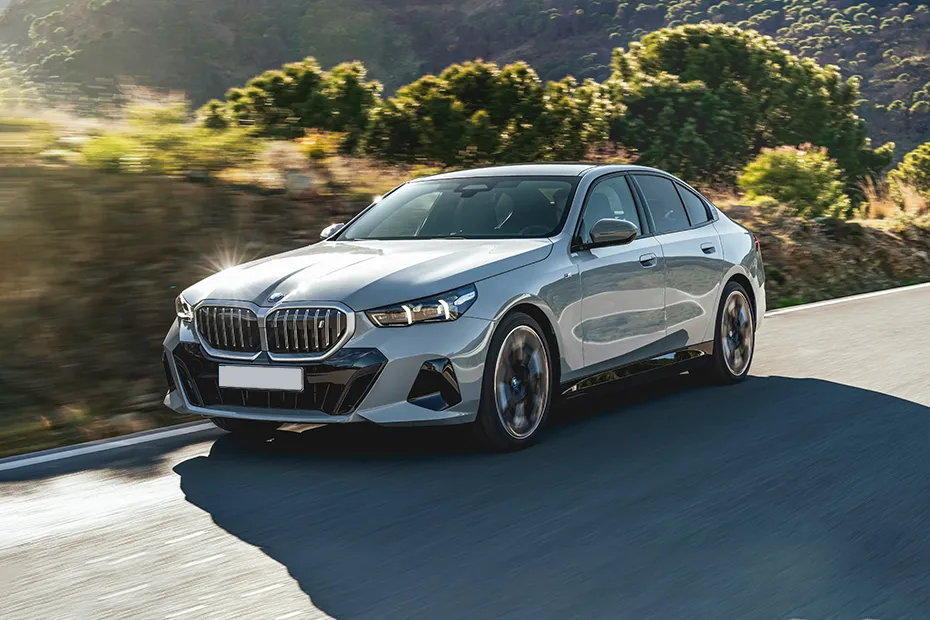Ever wondered why you are able to sit comfortably in your car even for long distances? You might be thinking seats, of course car seats do have a role to play but not more than your car’s suspension. Yes, the jumble of springs and shockers you see sticking under the car are what make your ride a smooth one. The suspension on your car absorbs the impact or the bumps before it can hit the frame and give you a comfortable ride. Not only that, advanced suspension systems can adapt to the road type and auto configure themselves to make the bumpy road a walk in the park.
Before we take you to different types of suspensions, take a look at the few components that are almost the same across all types of suspension systems. These are:
Also Read – Types of Chassis
- Damper or shock absorber: Its function is to absorb shocks from the road and bumps. It does this by absorbing the kinetic energy transferred from the wheel to the frame and converts it into heat energy. This is why the dampers are filled with oil to keep them cool as they continuously absorb the shocks from the road. A damper cuts out the vibration and prevents you from bouncing in the car.
- Coils or Springs: Coils also absorb shocks and compress corresponding to vehicle load. Coils and dampers mostly go together to prevent body roll i.e. preventing the car from toppling in the event of a high speed turn.
- Ball Joint: Since there are many rotational forces at play when a car turns, a ball joint helps as a rotation axis to smoothen the process.
- Knuckle Arm: The knuckle arm, also known as the steering arm, connects the suspension to the wheel. A very important part of the suspension system, a knuckle arm works as a meeting point for the suspension and the wheel.
Suspensions differ according to vehicle body types and sometimes even brands. Here are the eight commonly used car suspensions that you may encounter.
Multi-Link Suspension

As the name suggests, this type of suspension has multiple links attached to the car frame and the wheel assembly. These multiple links can adjust to any force thrown at them and that is the reason they are also used in off-road vehicles. Multi-Link suspension systems are used on the rear tyres so as to give a very comfortable ride and a good grip. In the case of a sharp turn this suspension will keep your wheels glued to the ground. These kinds of suspensions are featured mostly on premium cars due their complex build and any damage results in a time consuming and expensive repair.
Also Read – Types Of Automatic Transmissions
Rigid Axle Suspension

The rigid axle suspension, also known as beam axle suspension, features an axle that is perpendicular to the vehicle and connected to the wheels via a wheel spindle and can be combined with leaf springs or coiled springs. A rigid axle is very durable and can bear a lot of load. Unlike most modern suspensions, the rigid axle suspension has a very simple setup, making it easy to repair and replace. This suspension and its modified versions are used in heavy duty vehicles due their load bearing capacity and offroaders due to space efficiency and better articulation. However, these suspensions are not meant for high speed and sharp turns and will roll the vehicle over if subjected to hard cornering.
Macpherson Suspension

Developed by American automotive engineer Earle Macpherson, the Macpherson strut or suspension is one of the most widely used suspension systems in cars. The Macpherson strut is widely used due to its simple design and ability to provide comfort, control and at the same time consume little space. The feature which set it apart was the inclusion of steering pivot in the suspension itself hence its use in the front suspension. The suspension consists of a damper, a steering knuckle having two mounts and a track control arm. The top mount on the knuckle links to the damper while the lower one links to the control arm allowing the chassis and the wheel to move in unison. The suspension can be modified to accommodate a variety of vehicles and driving conditions.
Also Read – Types Of Car Engine
Independent Suspension

The independent suspension is a suspension system that is equipped on each individual wheel. This means that bumps experienced by one wheel are not affected by the others. hence offering a very comfortable ride and control. The suspensions that employ this system are the Macpherson Strut, Double Wishbone Suspension, Multi-link Suspension among others.
Also Read – Types Of Brakes
Rigid suspension – Leaf Spring

Similar to the beam axle suspension in construction, the leaf spring rigid suspension employs leaf springs to act as dampers instead of coil springs. Leaf springs are long bundles of spring material, mainly steel, that flex under pressure by the vehicle’s axle. Leaf springs can support a lot of weight without breaking a sweat, making them ideal for use in commercial vehicles. However, they are not meant for comfort and high speed or sharp cornering and will render the suspension to alter vehicle handling if put in those conditions.
Also Read – Different Types Of Fuel
Trailing Arm Suspension

The trailing arm suspension consists of a steel arm whose one end is pivoted to the vehicle’s chassis and the other end to the rear axle and a damper. Used mostly on the rear of a vehicle, a trailing suspension cannot be used for heavy duty vehicles as there are chances of the arm getting bent which would hamper handling. The most common example of a Trailing arm suspension is the rear wheel of a motorcycle.
Double Wishbone Suspension

The double wishbone is one of the most sophisticated suspensions ever made and the most efficient one at flattening the bumps from the road. The double wishbone suspension consists of two A-shaped arms which look like wishbones. This arrangement is found only on independent suspensions and allows for greater control and comfort even at high speeds and fast cornering. Due to their agility, stability and comfort the double wishbone suspension and its modified versions are featured on luxury cars, sports cars and race cars.
Also Read – Types Of Car Scratches
Air Suspension

Air suspension or air springs is a kind of suspension that uses air bellows in place of conventional coils and dampers. These air bellows can be filled with air using an air compressor and deflated as well to adjust the ride height of the vehicle. An air suspension is one the most comfortable and load bearing suspensions which is why they are used on most top of the line luxury and sports cars. Due to their load bearing capacity they are also used on many trucks and buses. Air suspensions are very adaptive and together with an onboard computer can adjust to any height, load or passenger to suit requirements.
Also Read – Types Of Car Paint
FAQs
What are the disadvantages of a double wishbone suspension?
Double wishbone suspensions are very complex and heavy structures, so, if they sustain any damage or need to be repaired, they would require a skilled mechanic, lots of time and lots of money. But, the double wishbone suspension is a durable one and it would be quite a while or quite a beating before it would need a repair or a replacement.
Why are air suspensions so comfortable?
There is only one word - Adaptability. Air suspensions are also complex but very effective structures, when combined with a sophisticated sensor laden onboard computers they map out the road structure, calculate the needed pressure and adjust accordingly. All in all they essentially become an air cushion, which would tread on any surface without you feeling the bumps or the undulations.
What are the disadvantages of an Air Suspension?
Since air springs rely on air and inflatable rubber bellows, they run the risk of getting punctured or improper inflation. However, modern systems have countered these, and the risk of getting punctured is a very low probability, but if they do get punctured then the car will be undrivable.
Which suspension system is the most economical?
Combining comfort and control the Macpherson strut is the most sought after suspensions due to its low manufacturing costs and simple design. Together with modifications it can be used to alter the suspension to suit the vehicle’s requirements.
Why do heavy vehicles use the rigid axle suspension system?
Rigid axle suspension has an enormous load carrying capacity due to its simple construction and high strength. Even some off roading vehicles opt for Rigid axle suspension due to its resilience and ability to withstand bone shattering impacts. However, these suspensions are not meant for speed or high speed cornering and will cause the vehicle to roll over if put in such conditions.


Thank you for helping me with such an important information